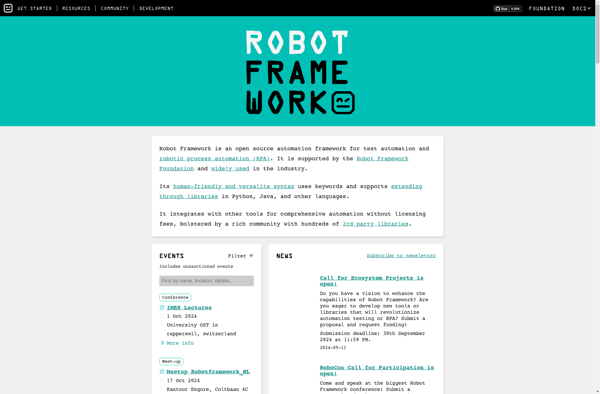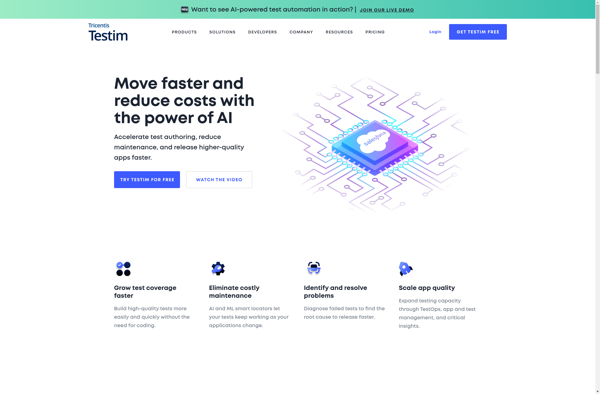Description: Robot Framework is an open-source automation framework that uses tabular test data syntax for easier test creation and maintenance. It utilizes keyword-driven testing approach to make tests readable and easy to create.
Type: Open Source Test Automation Framework
Founded: 2011
Primary Use: Mobile app testing automation
Supported Platforms: iOS, Android, Windows
Description: Testim is an AI-powered end-to-end test automation platform for web and mobile apps. It allows creating, executing, and maintaining automated tests without coding. Testim is easy to use, scalable, and provides advanced AI capabilities for test maintenance.
Type: Cloud-based Test Automation Platform
Founded: 2015
Primary Use: Web, mobile, and API testing
Supported Platforms: Web, iOS, Android, API

